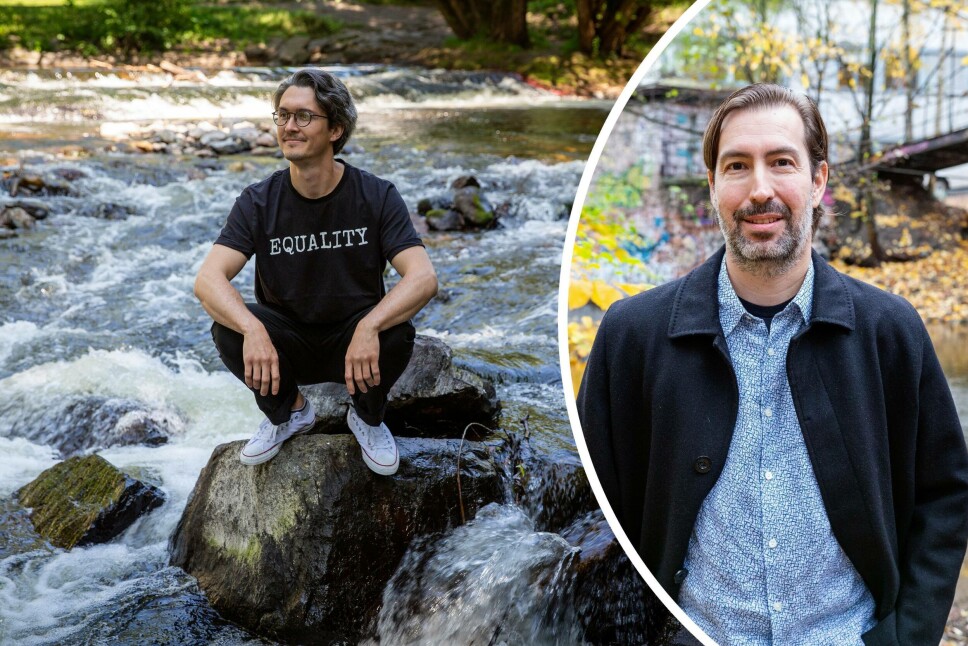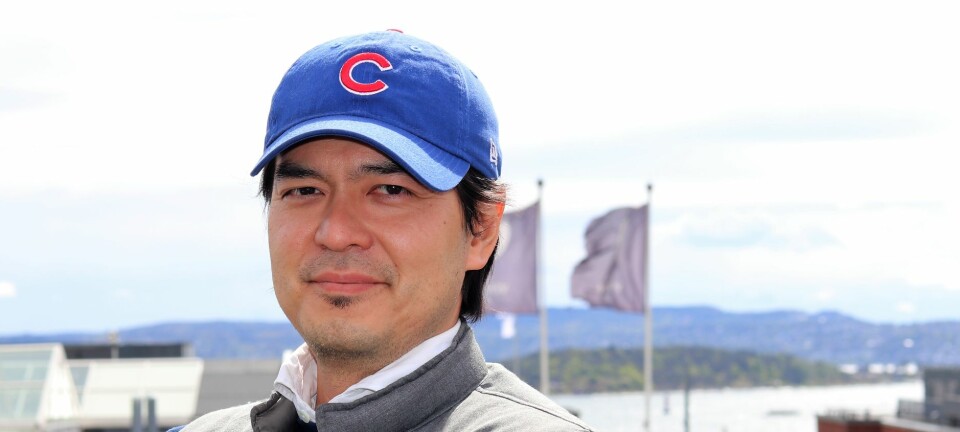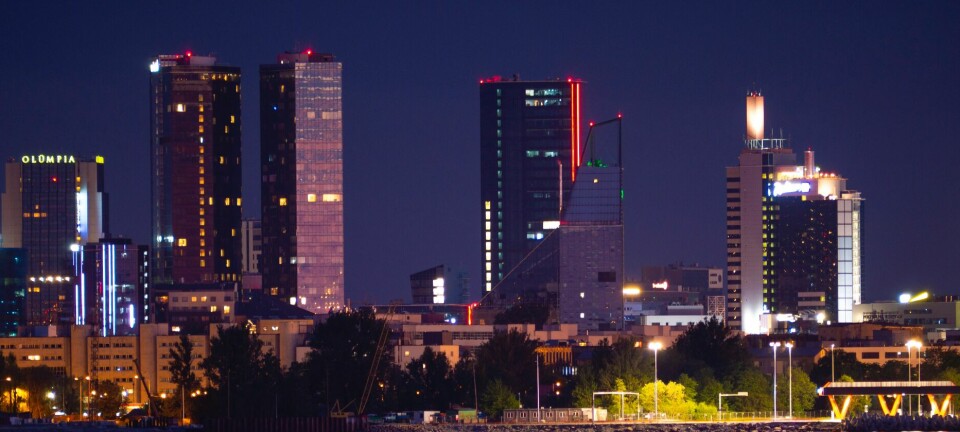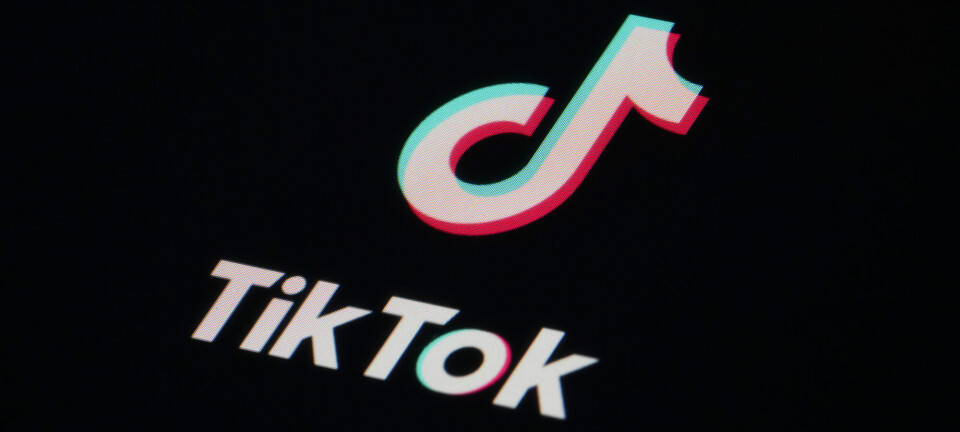-

Senior Software Engineers - Frontend & Backend | Hornet
-

Medeier* | Boitano
-

Engineering Manager | Handelsbanken
-

Erfaren mobilapp-utvikler | Handelsbanken
-

Fullstack-utvikler | Norad
-

Lead Data Engineer | Norad
-

Product Owner Investeringskjerne - Bergen/Oslo | DNB
-

Innovation-to-Market Specialist | Highsoft
-

Product Owner | DNB
-

Data Engineer, Data Core team | NBIM

«America welcomed 1 million Norwegian immigrants, is it time to return the favor?»
«Silicon Valley grew thanks to the immigrant entrepreneurs. Norway could benefit from the same approach,» writes Sean Percival.
When I first read about Kyle Havlicek-McClenahan’s challenges with UDI my heart sank a little. Not just because he’s a fellow American here in Norway but because I have also been there with my own UDI challenges. Furthermore, I worried I might be in the same situation yet again this year. Much like Kyle, I worked significantly less during the pandemic and wondered whether I also failed to satisfy one of the many requirements of UDI’s oh-so-strict rules. I was also not fully employed but used a self-employed work permit during this time. It’s pretty common for foreigners coming to Norway to use several visa types before becoming eligible for permanent residency or citizenship.
Then I read again in Shifter about Andy Chen, who had his own UDI challenge a few years ago. This was despite how much value creation Andy has done in Norway, both in jobs created and tax revenue generated. Again the concern was that he was not fully employed and instead spent his time investing and on board positions. The capitalist cynic in me thought, well, ya, of course, he wasn’t taking more typical full time employment. With his previous success he doesn’t exactly need to be. Still, and from my experience, UDI does not make exceptions. You check all the boxes or you get denied, simple as that. Unlike with a student visa, there is currently no way for self-employed foreigners in Norway to prove their ability to support themselves financially without employment contracts. Perhaps you can already see how this presents a challenge for foreign founders or startup freelancers in Norway. As part of that, it’s also a challenge for Norwegian startups who in many cases can’t afford to bring on new talent in a full time capacity.
Shifter asked me a few weeks ago to contribute my thoughts but at the time I wasn’t able to. You see, I was in my own very long (almost six months) approval process to get a new work permit to start my new role as CMO at Iterate. Usually I’m not shy about sharing my opinions, but with something as critical as my ability to stay in Norway, I felt it was better not to poke the beast. Thankfully the approval did come through, and as a result, I can not only stay in Norway but share those opinions with you now. I think it’s important for Norwegian companies looking to hire international talent, especially non-EU based talent, to better understand some of the challenges we go through just to be here. Along with that, some of the stress and uncertainty it can create for us as we navigate and ultimately wait for UDI’s process.
To stay or to go
I would assume that many Norwegians can’t relate to the issue of simply being able to stay in Norway. Naturally, as a citizen, this is not something you worry about, but for the first few years we outsiders experience significant stress in this regard. When I share some of the challenges I’ve had with UDI, my Norwegian employers and friends are often surprised. They find it strange I must go through the process annually and whenever changing jobs. Because everything just works so well in Norway, they also assume immigration is a smooth digital streamlined process like everything else here. Unfortunately, this is not the case. It’s actually a very analog process involving printing out some 50 pages of various documents and several in-person meetings to verify both the documents and one's identity.
Although it’s not the bureaucracy or paperwork that is the most painful part of this process, it’s the uncertainty. As a result, we often find ourselves in a purgatory-like situation. Unable to start work while an application is pending is one aspect, but worse, you find yourself in this holding pattern. It’s even small things like “Should I buy a new refrigerator? Hmmm, maybe not! Maybe I won’t have this apartment in a month if I need to leave.”. You can imagine how this stress impacts relationships, as just the thought of not being with your loved one(s) can be soul-crushing. For the loved ones back in our home countries we are often kept away from them as well during this time. If your permit has expired and you’re stuck in a queue for a new one you can’t leave the country as you might not be able to get back in.
Corona has, as one might expect, done nothing to reduce the wait times you’ll experience with UDI. Going from a few weeks to now roughly 15 weeks just to get a decision. When you need to reapply or appeal, you better be patient because this now takes more than a year. This can be brutal when you consider there’s already a lot of other things to deal with as you adjust to a new life in Norway.
The Startup Visa
When discussing these issues and Norway’s need for more international talent there is often talk of a “startup visa” and comparisons to the Estonian e-residency system. However, it should be noted that the Estonian system does not grant you actual residency of any kind. It only allows you to set up a business there. Although I will say that unlike the Norwegian business registry (Brønnøysund) at least it’s more accessible and also in English. That’s great for allowing international business founders access to the EU banking and business systems, but it does not encourage entrepreneur-driven immigration. And this is the key point and perhaps the most important thing to take away from this article if you care about Norway developing into a truly vibrant startup ecosystem.
You see, the secret to Silicon Valley’s success is not the great weather. It’s not the abundant venture capital, although that certainly does help. Really the secret is the sheer volume of immigrants that come to Silicon Valley to build both their dreams and their companies. We can even quantify it with 54% of our unicorn startups created by immigrant founders. That’s not even counting the many thousand immigrants who come to write the code that powers the next wave of innovation. In terms of those immigrant-founded tech companies, a few you might be familiar with are Google, Tesla, Zoom, and Stripe. While it’s nice to see a few unicorns recently created here in Norway, I genuinely feel that Norwegian founders alone can’t start the next ten unicorns. So I’ll try to say this with the least ego and bias as possible, but Norway needs the immigrant founders even more than the immigrants need the high-quality life in Norway can give you. Although frankly it seems like a fair tradeoff to me. Norway gets a much needed talent boost and we foreigners get to experience the peace of a more koselig life.
Between 1820 and 1920 over 1 million Norwegians made their way to America. They were in search of a better life and I would guess they were also sick of eating fish and potatoes for every damn meal. Naturally, these were very different times and America was a melting pot attracting people and cultures from all over the world. I’m not trying to say you owe us one, but with America on the decline and Scandinavia in the spotlight Norway can now benefit greatly with more migration going the other way. Today it’s more like trying to fit into a small keyhole when it should instead be a wide open door.
The Startup Refugee
Now let’s get into perhaps the most controversial opinion based on my own experience: that immigrating to Norway as an entrepreneur is not so different from coming to Norway as a refugee. That’s not to discount the plight of the refugees, who of course are facing significantly more hardship than someone like myself, a very privileged American. However, I say this from the experience of the process itself. It was clear to me when my first interactions with the Norwegian immigration system were not with the government per se but with the police. So right from the start, there is a feeling of mistrust between us. One must prove both their identity and that they won’t become a drain on the Norwegian welfare system.
I hope to speak on behalf of at least myself and perhaps most American founders coming to Norway to say that we don’t want the handout. We have no expectation of it. We instead want to build and contribute value. We’re driven and yes, we’re often capitalists, but we don’t mind if the state makes money alongside our wealth creation. I think there’s a common misconception that Americans don’t like paying taxes but please don’t project what a few billionaires do on us lowly startup folks. Step one to making it easier for us to build value in Norway is to decouple us from the current UDI system which is simply not designed for startups. It was instead designed for those refugees and perhaps big consulting companies like PWC where employment is more straightforward.
Let’s also not forget that after Brexit, the UK now resides outside of the EU and therefore those incoming founders and coders will now face the same uphill battle coming to Norway as Americans. Nothing else we need more ways to show we can support ourselves, or have attracted enough funding to establish a business in Norway.
To come to Norway as a student it’s a prerequisite to prove you can support yourself with the money in your bank account. There are also residency permits for researchers with their own funds who want to come to Norway. Where’s the same opportunity for incoming founders and startup employees with more motivation than salary?
The costs that are harder to count
Always the capitalist, I think a lot about numbers and opportunity cost. In my case did the government not care that during my 6 months of waiting to start my new job they lost out on significant tax revenue? One person perhaps doesn’t matter in the grand scheme of things but what about the hundreds of others waiting just like me? What about the loss of productivity that impacts companies needing newly hired talent, like, yesterday?
In Kyle’s case, the untold cost is significantly harder to calculate. Here’s someone with a funded Norwegian startup that has now been in UDI purgatory for 16 months. Imagine the distraction that can add to the already stressful life of an early-stage startup founder. He has unfortunately also had to leave the country with no clear idea of when he can return. No one can say for sure if Kyle’s startup will ultimately succeed, but the Norwegian state, which routinely talks about the need for new business creation, is certainly not helping ensure his success. He has been in Norway for 8 years and considers it his home. Yet UDI still treats him like a new arrival and doubts his ability to support himself.
I am incredibly grateful to be here in Norway and know how lucky I am even to have the chance to be. However, like many things in Norway, it’s not always easy. Norway is an easy country to love but it’s much rarer to feel the country love you back. To some extent, I know this is the Norwegian way. We must struggle and put in the work collectively to see any benefit. So I’m not asking for extreme exceptions to be made for us. I also know asking the Norwegian government to dramatically change any process is often futile, or at least takes many years. However much like changes to the option tax scheme, this is one issue that is severely hindering growth in the ecosystem.
For what it’s worth, my latest work permit granted will finally allow me to be considered for permanent residency and soon enough full Norwegian citizenship. Now I just need to be ready for the bigger challenge than any government bureaucracy… mastering the Norwegian language well enough to pass the required test.
Sean Percival is an American investor, author, and entrepreneur living in Norway. Today he’s the CMO of Iterate, a Norwegian venture builder and author of Living with Norwegians, a guide for moving to and surviving Norway






